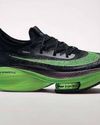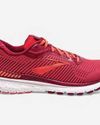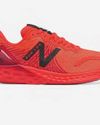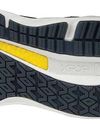IN THE SECOND PART OF A FEATURE LOOKING AT THE LAST 70 YEARS OF THE SPORT, STAN GREENBERG CHRONICLES THE CHANGES

ORIGINALLY the 800m was not run in lanes, but after several problem races in the late 1950s it was suggested (initially by Sir Arthur Gold) that part of the first lap should be. It was finally decided that the first 100m should be thus controlled, but in the 1976 Olympics it was extended to 300m as an experiment – which was not continued.
With regard to the question of altitude, it seems that the upper limit of events that gain advantage is the 800m. Beyond that it appears that only athletes who have been brought up in mountainous countries suffer less from the effect. In recent years, this has led to ever more athletes from sea-level habitats going to altitude to train.
One important change to the regulations that has greatly helped times in the longer events is the rule about pace-making. When Sydney Wooderson broke the world record for 880 yards, and 800m, in 1938, he did it in an unusual framed handicap – with other runners starting at different places – causing him to run an unfamiliar fast first lap.
When Roger Bannister ran a British record-breaking mile in 4:02.0 in 1953, it was disallowed because it was decreed to be a handicap race. His 3:59.4 a year later was to all intents and purposes very similar, except in this latter case both pace-makers, Chris Chataway and Chris Brasher, finished the race.
Today, because of a change in the rules, and especially in Diamond League meetings, pace-makers are the norm and are “ordered” not to finish the race. This continual pacing seems to interfere with some runners learning how to run their event in championship competitions.
Women’s 1500m/mile competition didn’t really get going internationally until the late 1960s and got a tremendous boost in the 1972 Munich Olympics when the Soviet Union’s Ludmila Bragina broke the world record three times, taking it down to a then remarkable 4:01.4 mark.
DISTANCE
Esta historia es de la edición November 16, 2017 de Athletics Weekly.
Comience su prueba gratuita de Magzter GOLD de 7 días para acceder a miles de historias premium seleccionadas y a más de 9,000 revistas y periódicos.
Ya eres suscriptor ? Conectar
Esta historia es de la edición November 16, 2017 de Athletics Weekly.
Comience su prueba gratuita de Magzter GOLD de 7 días para acceder a miles de historias premium seleccionadas y a más de 9,000 revistas y periódicos.
Ya eres suscriptor? Conectar

Carbon Footprint
You'd have had to have been running on a different planet to miss all the recent debate about carbon-plated shoes. The talk of bans and performance enhancement has been so widespread that even non-runners are asking their running friends about the potentially magical footwear.
Trail time
WHEN looking for a trail or off-road running shoe, it’s often all about the grip. However, given that no two paths are the same, careful consideration is required. What’s the terrain like where you’ll wear the shoes the most? If you’ll be negotiating soft, wet and muddy conditions then look for deeper lugs. For tackling gravel tracks and forest trails then more evenly spaced lugs will work better. When it comes to cushioning, consider how hard the ground will be; if it’s soft then you’ll be fine in low-profile shoes, but on those firmer tracks reasonable cushioning will be called for.

Stay neutral
EVOLVING every year, if not month, neutral cushioned shoes are seeing developments in cushioning materials and dynamics at a pace which is nothing short of astonishing. The latest models feature new polymers in the midsoles to give them a cushioned feel while at the same time keeping their weight to a minimum. Give them a spin and choose the most comfortable for mile after mile of shock absorbing running.

Support network
WHEN it comes to ‘over-pronation’, a common question is ‘how much is over?’. With no hard and fast rules, it’s best to choose a shoe that instinctively feels right. Gait analysis can often assist in helping you make this choice and your specialist running store is always a good place to start if in doubt. To help you make that choice, here’s a selection of some of the best ‘support’ shoes around.

Need for speed
THE racing shoe segment of the market is becoming somewhat split. This is partially due to the rise of carbon-plated footwear but also the fact that many shoes are becoming much lighter. Here we take a look at some of the leading contenders to toe the line in.
Gadget show
WITH technological products to enhance every area of life, running is now no different. From headphones to treadmills, the devices to aid performance and recovery are endless. Here we take a look at some of the latest gadgets and gizmos to enhance your training.

What's in a shoe?
We bust some of the jargon around footwear

How To Prime Your Immunity
Taking steps to shore your body’s defences has never been more important. Here’s how to do it, says Peta Bee

English Schools Survival At Stake
Covid-19 could lead to ESAA losing thousands this summer

Covid-19: Athletics Events Are Wiped Out
Unprecedented calendar changes due to Covid-19